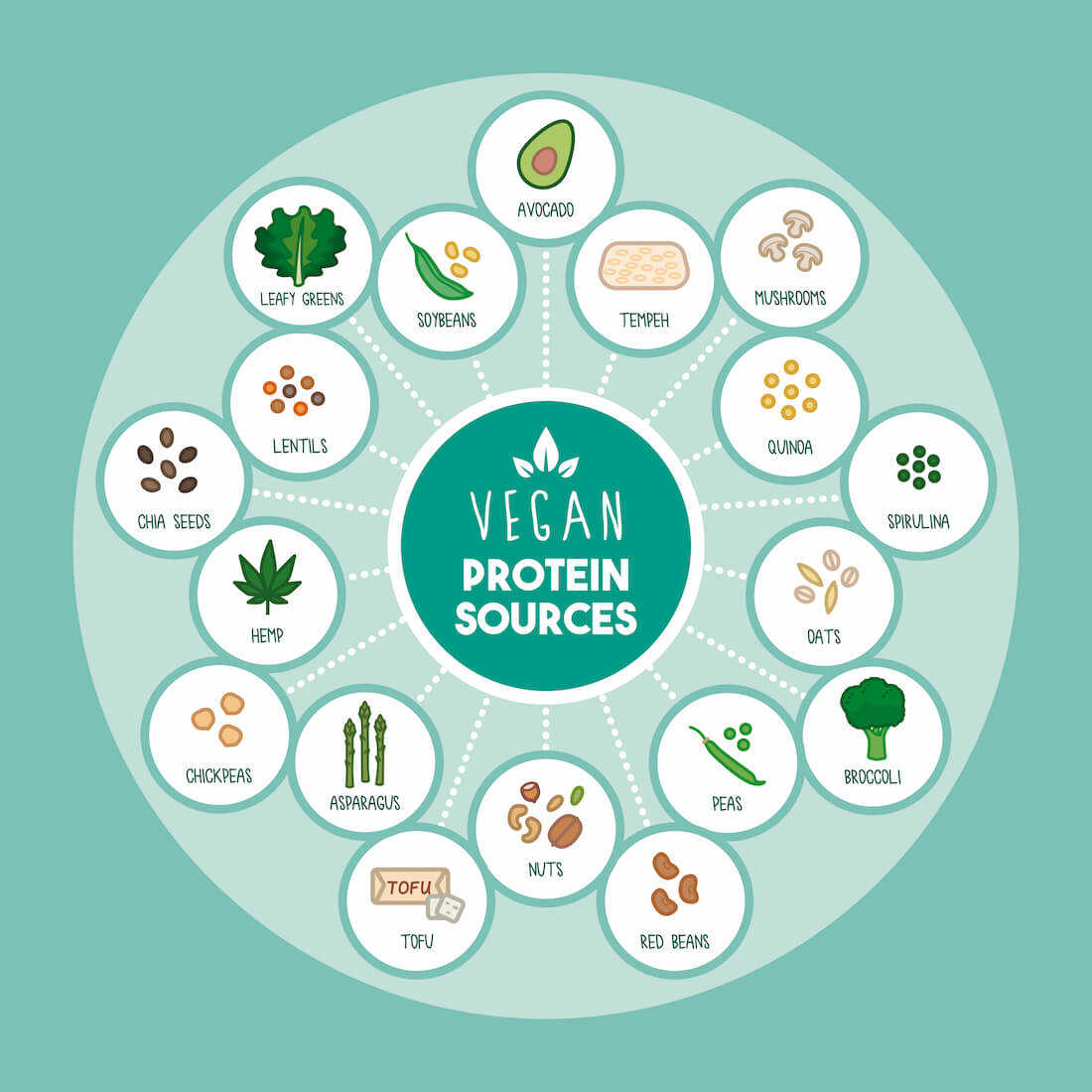
We talk a lot about protein and its ideal quantity in the diet. Some defend 50g while other would advise up to a 150g.
First of all, we should speak about macronutrients, the nutrients that provide us with calories: Proteins, Carbohydrates and fats. The first two ones provide us with 4kcal/ g. While fat provides 9 kcal/g. An adult needs on average 2000 and 3000 kcal / day for women and men respectively.
Personally, I try to consume a maximum of 100g of proteins which is equal to 400 kcal.
Protein is a molecule that consists of a chain of Amino Acids. There are what we call complete proteins (they contain the 22 amino acids) and incomplete proteins. Generally, in all the meats you get the full spectrum of amino acids, which is not the case in the plant’s kingdom.
If I am vegetarian, will I possibly be deficient in certain amino acids? The answer is simple: in our society, NO! For instance, if we eat beans and rice, we combine, it gives us a full spectrum of amino acids. Someone that eats rice, almonds, soy, peas, lentils, will never be deficient in proteins or in specific amino acids.
Let’s go for a few Q&A’s.
Q: is there any benefit in eating plant based proteins over animal sources?
A: Yes definitely, and it is scientifically proven. Plant based protein brings significantly lower levels of cholesterol, it does not affect your blood pressure, it contributes to a lower body weight, and it is much more efficient in stabilising blood sugar levels. Plant protein is incomparably much more ecological than the animal one. Its production costs are lower in terms of environmental foot print. Plus, together with the protein comes on top a massive complex of minerals, antioxidants, vitamins and fibre that is inexistent in meat.
Q: Is there any benefit in consuming animal protein over plant protein?
A: Yes. Besides, as mentioned before, being a complete protein, it is very rich in B vitamins and Iron. Overall, it is proven that a diet high in meat presents with certain risks for your health if not well balanced with green leafy vegetables.
Q: What is the role of green leafy vegetables within protein consumption?
A: It is Crucial. Protein is acidifying. Consuming plant based protein, such as green leafy vegetables which are rich in chlorophyll, have a massive power: they ALKALISE. This is without a doubt their biggest power. Chlorophyll besides being a blood builder, has a high pH which is probably its biggest contribution to our health.
Q: Should I then completely eliminate meat and fish from my diet?
A: Not necessarily. Indeed, from a strict environmental perspective, definitely; from an ethical perspective, without a doubt as well. In a health wise perspective, no. But we should minimize its consumption. I would say to consume meat only once or twice a week maximum. As well as consuming fish, twice a week. Have then only vegetarian meals the rest of the time.
For some people with certain medical conditions, it is sometimes not possible, and meat/ fish might be necessary in higher quantities (but those health conditions are rare and actually there are more conditions that require the opposite)
Q: Is there any complete plant protein?
A: Indeed, our Super Vegan Protein and Super Green Protein were specifically conceived to contain the whole spectrum of amino acids. It is an excellent option, not only for athletes, but also for anyone looking for a healthier lifestyle.

